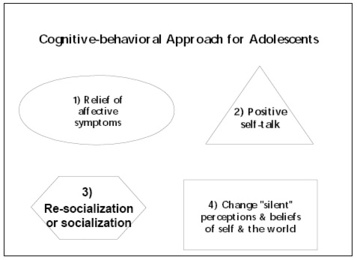The WAGER, Vol. 2(20) – Cognitive behavioral therapy for adolescent problem gamblers
Adolescence is often a difficult time for youth who are taking risks, exploring their identity, and separating from parents in their journey towards autonomy. Gambling and substance use can appear attractive to adolescents who may be searching for a way to avoid pain and increase pleasure*. While many adolescents can manage their lives and never experience adverse consequences from gambling or using psychoactive substances, others become addicted and experience a range of problems. A percentage of these adolescents end up in treatment, where they can learn how to recover from addiction. Pursley proposes a cognitive behavioral treatment approach for adolescents addicted to gambling and/or substances. This approach is directed toward four aspects of substance abuse or other addictive behaviors: 1) affective conditions such as depression or anxiety that can exaggerate addiction. Adolescents with affective disorders experience negativity, anger, fear, and wishfulness. Therapy can help adolescents improve their negative self-image and manage their anger and other emotions; 2) positive self-talk can counter the impulsive self-talk that urges adolescents to engage in addictive behavior; 3) adolescents with addictions often choose friends and environments that reflect their own priorities. These adolescents can learn alternative ways of living in the world while simultaneously receiving support from others who share the same recovery goals; 4) negative beliefs that act as obstacles for recovery can be changed. This cognitive-behavioral strategy can help adolescents struggling with gambling or substance addiction develop a way to make positive decisions, cope without relapsing, gain self-mastery through behavioral change, defeat addictive self-talk, use support groups to maintain change, and turn negative self-perceptions into positive perceptions about self and others. This approach can be used in individual, group, or family therapy.
Source: *Pursley, W.L. (1991). Adolescence, chemical dependency and pathological gambling. Journal of Adolescent Chemical Dependency, 1(4), 25-47.
This public education project is funded, in part, by The Andrews Foundation.
